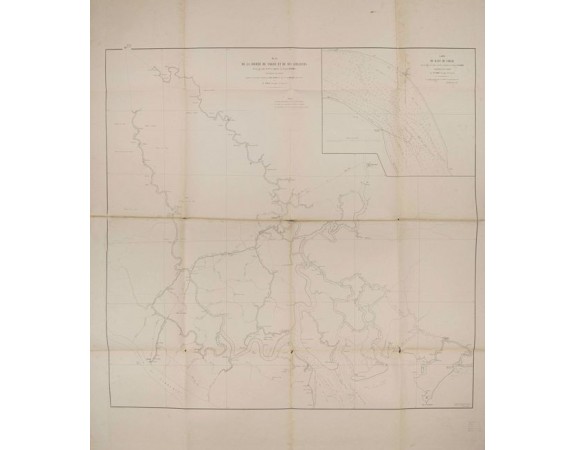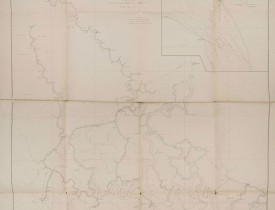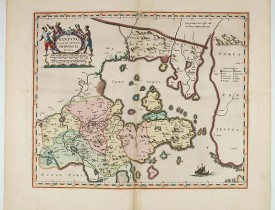LESPES - Plan de la riviere de Saigon et de ses affluents. . .
 cliquez sur l'image pour l'agrandir
cliquez sur l'image pour l'agrandir

LESPES - Plan de la riviere de Saigon et de ses affluents. . .
Date: St Joseph 1860
Format: 890 x 900 mm.
Color: Noir et blanc.
Condition: Good condition. Folds. Some paper thinning on crossing of folds.
Description
A huge folded map the Saigon river prepared after Léo de Lespès, Rieunier Narac. Inset map of "Carte de Banc de Corail, levée d' après les ordres de Mr. le Captaine de Vassreau D'Ariès Gouverneur de Saigon par M. Narac Enseigne de Vaisseau.
The map was made by order of Capitaine de Vaisseau d'Ariès, the first French governer of Saigon.
It was one of the first detailed maps of the Saigon river
Provenance : Pierre-Paul de La Grandière (1807-1876), French admiral who was Governor of the colony of Cochinchina from 1863 to 1868. He consolidated French control over Vietnam, and developed the city of Saigon as a major port.
In May 1863, La Grandière became Governor General and commander of the Cochinchina naval station. He proved to be a capable administrator and economist. He developed the port of Saigon to a major site for reception and repair of ships. At first he prohibited the export of rice to ensure the supply of the local population and improve crops so they could again be exported. He developed French and indigenous administrations, created more schools, recruited and trained Indochinese troops and abolished corporal punishment.
The map was made by order of Capitaine de Vaisseau d'Ariès, the first French governer of Saigon.
It was one of the first detailed maps of the Saigon river
Provenance : Pierre-Paul de La Grandière (1807-1876), French admiral who was Governor of the colony of Cochinchina from 1863 to 1868. He consolidated French control over Vietnam, and developed the city of Saigon as a major port.
In May 1863, La Grandière became Governor General and commander of the Cochinchina naval station. He proved to be a capable administrator and economist. He developed the port of Saigon to a major site for reception and repair of ships. At first he prohibited the export of rice to ensure the supply of the local population and improve crops so they could again be exported. He developed French and indigenous administrations, created more schools, recruited and trained Indochinese troops and abolished corporal punishment.
700€
- N° Reference: 30647
Etiquettes :
LESPES - Plan de la riviere de Saigon et de ses affluents. . .
, Cambodge - Laos - Thaïlande - Vietnam


